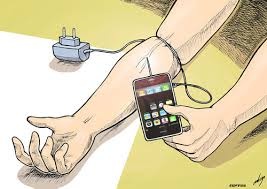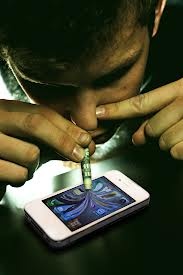In the old age, people spend a simple life. The people who work on the different countries do not informed about it because there is no proper system were established. The parents waiting for the letter of his sons.

At that time, there are only source of information is letters. Letter is too slow source of information. But in this age the world becomes a global village. Due to modern technology, many methods used to inform the family about it.

There are so many sources like fax, email, Internet. But the most fast source is mobile. Due to the mobile phone the peoples talk from one country to another country.

In every country of the world, mobile phone is used for the messages. But in Pakistan, the peoples are addicted the mobile. Everyone has at least 2-3 sets of mobile phone. The young boys and girls busy in text messages every time and they have no time for his parents and also their family.

It is the fashion of this age that everyone take the mobile phone at least 15000-50000 thousand rupees. In the Pakistan, 99 % peoples have their own mobile sets and it is the competition between the younger generation to take the mobile of high prices.

The peoples are fully addicted by the mobile and they do not show any interest towards other activities like reading the books, playing the games. Young generation spend most of his time even 12-14 hours for text the messages.

It is very bad habit and this habit spoil our generation and also its future. They do not show any interest for the welfare work. It is the responsibility of every citizen of Pakistan that they work for the betterment of Pakistan but the younger generation do not realize the situation of the country.

They show selfishness and do not struggle for the betterment of the country. Due to the excess use of mobile phone the crime rate will be increases day by day.

In short it is the responsibility of the parents to resist the children that they avoid to using mobile phone in excess.



